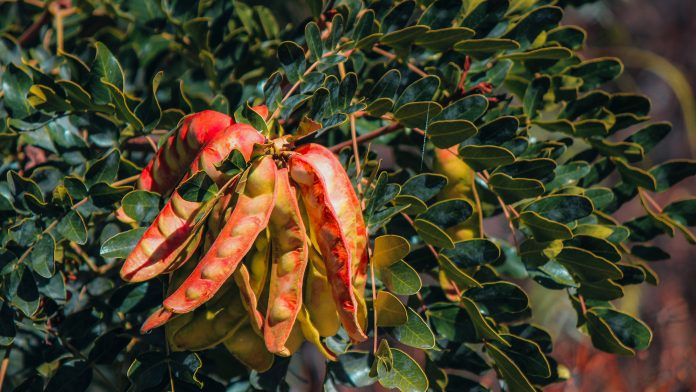Tara gum has the potential as a sustainable and biodegradable polymer in the food and drug industries.
Non-biodegradable plastics are major sources of environmental pollution, and have accelerated an interest in sustainable alternatives derived from natural polymers.
Tara gum, made from the seeds of the tara tree, is a potential alternative to plastic. It is a natural and water-soluble substance that contains complex carbohydrates, including the widely used galactomannan. This polysaccharide is used in coating edible films and as a stabiliser and thickener.
A recent study led by a team of researchers from Chung-Ang University has examined modification methods of tara gum to allow it to be used as an alternative to synthetic plastics in the food and drug industries.
The results were published in Carbohydrate Polymers.
Tara gum’s advantageous properties
Tara gum’s biocompatibility, biodegradability, and safety make it valuable in the food and drug delivery industries.
As well as this, the groups within tara gum polysaccharides are adaptable, making it an important substance for tailoring physicochemical and mechanical properties for specific applications.
The new study explores the modifications of tara gum for the development of pH-sensitive food packaging and drug delivery systems.
Professor Sangkil Lee from Chung-Ang University in the Republic of Korea, said: “Our team has a keen interest in natural polysaccharides and their role in drug delivery, and we have been working on tara gum and other natural polysaccharides to extend their applications.
“Various researchers have explored the wide range of applications for its various modified forms.
“However, this is the first review article on recent advancements in tara gum and its modified materials, and their potential role in food and drug delivery.”
Advancements in research
The team provide an overview of the advancements in tara gum research, describing methods for extractions, isolation, and characterisation of tara gum polysaccharides.
The team also examined the toxicology, rheological behaviour, and its behaviour in the presence of other polysaccharides.
Applications of the biodegradable plastic alternative
The paper looks at the applications of the material in the food industry. These include the use in biopolymer packaging, and monitoring seafood and milk spoilage.
The team also looked at its use as a gelation agent – providing short-term protection of food from oxidation.
The material can also be used in the pharmaceutical industry. For example, in the controlled release of vitamin D-3, antibacterial hydrogel development, iron delivery in both infants and adults, controlled release of drugs, and restoration of the physiological barrier of the gut.
“The physicochemical property of tara gum and its products can be enhanced using various kinds of monomers, crosslinkers, or other polysaccharides,” stated Professor Lee.
“Furthermore, the improvement of antibacterial properties might be achieved through the incorporation of chitosan or other natural polymers, as well as inorganic materials such as copper and zinc nanoparticles.”
Inspiring further research
The study could inspire the scientific community to conduct further research on tara gum for the development of food-related applications and safe drug formulations.
The work has the potential to reduce the global burden of health risks and costs, as well as helping to combat environmental pollution caused by excessive plastic waste.









